April 26, 2024 | 00:36 GMT +7
April 26, 2024 | 00:36 GMT +7
Hotline: 0913.378.918
April 26, 2024 | 00:36 GMT +7
Hotline: 0913.378.918
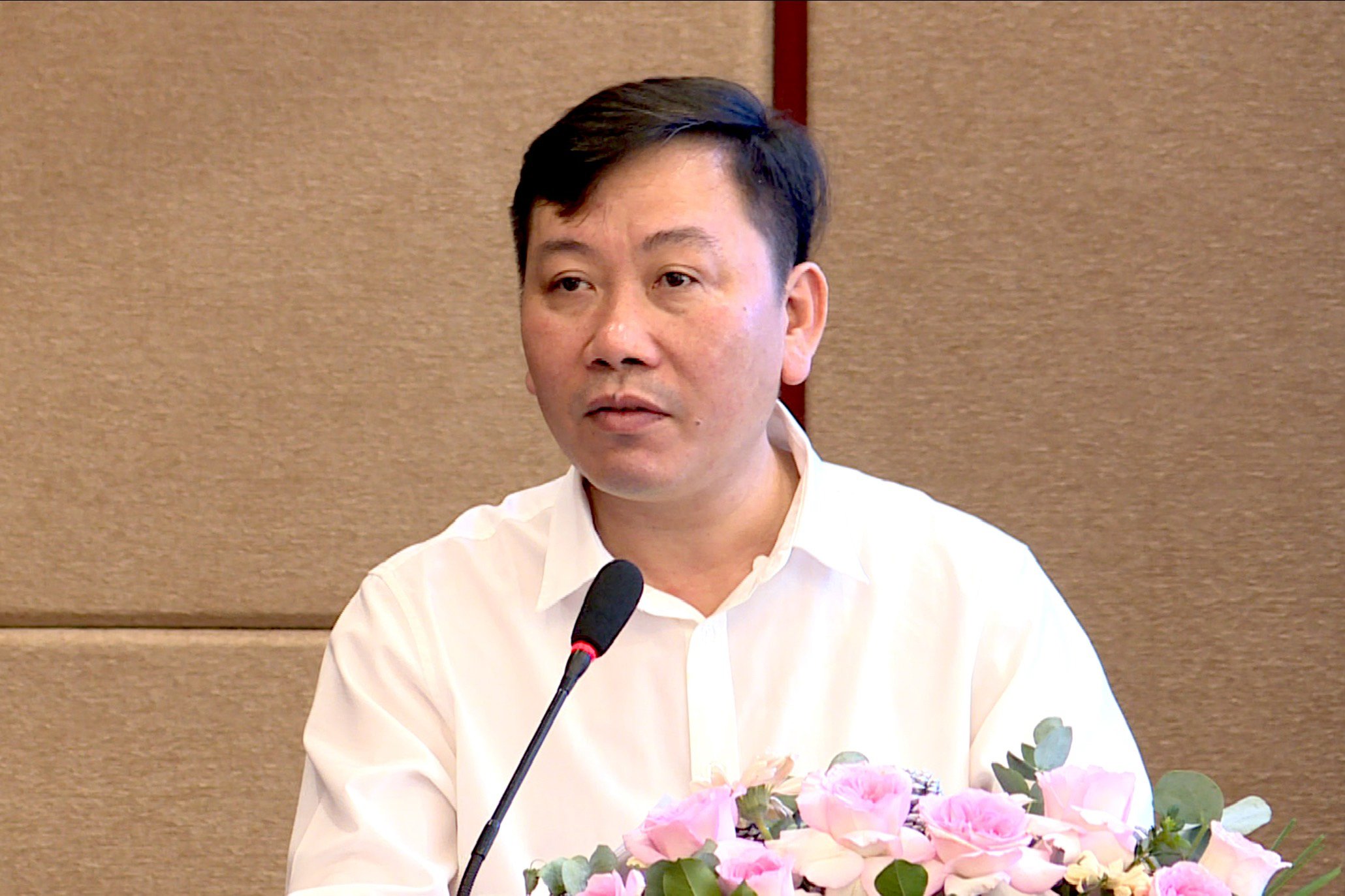
Nguyen Do Anh Tuan, Director of International Cooperation Department, Ministry of Agriculture and Rural Development spoke at the forum.
All over the world, people and nature are already feeling the negative impacts of biodiversity loss and climate change. Vulnerable communities are the ones most affected by the impacts as their livelihoods depend on natural resources. Land-use change, deforestation, and intensive agriculture are the main causes of climate system collapse and severe ecological degradation.
The United Nations has established the Sustainable Development Goals (SDGs) to address the challenges we face. The SDGs also lay out a clear roadmap for a sustainable future by 2030.
However, every year we lack about $2.5 trillion to make this happen. Only $52 billion has been invested in the conservation and restoration of ecosystems while this requires a budget of $300-400 billion.
The efforts of the Government and development organisations alone would not be able to close this financial gap. But estimates suggest that, through aggressive business models, private enterprises could cover half of the financial need to achieve the SDGs.
Therefore, WWF and MARD are promoting projects in many important landscape areas around the world such as the Landscape Resilience Fund (LRF), Netherlands Climate Fund and Development (DFCD), More Climate Action (MoMo4C).
On April 20-21, WWF and the MARD co-organised a forum to share experiences on the process of identifying and developing agro-forestry projects in the central Truong Son region.
This is the third experience-sharing forum in Vietnam when nature-based solutions are still quite new. In the process of developing and implementing such projects, WWF has always received close cooperation from the MARD.
Nguyen Do Anh Tuan, Director of the MARD’s Department of International Cooperation said at the forum that developing ecological agriculture, and responding to climate change was Vietnam's strategic orientation.
“The MARD acknowledged the comments and initiatives raised at the forum. We will coordinate with related parties to promote and replicate effective favorable business models," he said.
The forum was attended by more than 100 domestic and foreign delegates, representatives of central and local agencies, NGOs, research and consulting centres, universities, companies, organisations, communities, financial institutions, sponsors and the media.
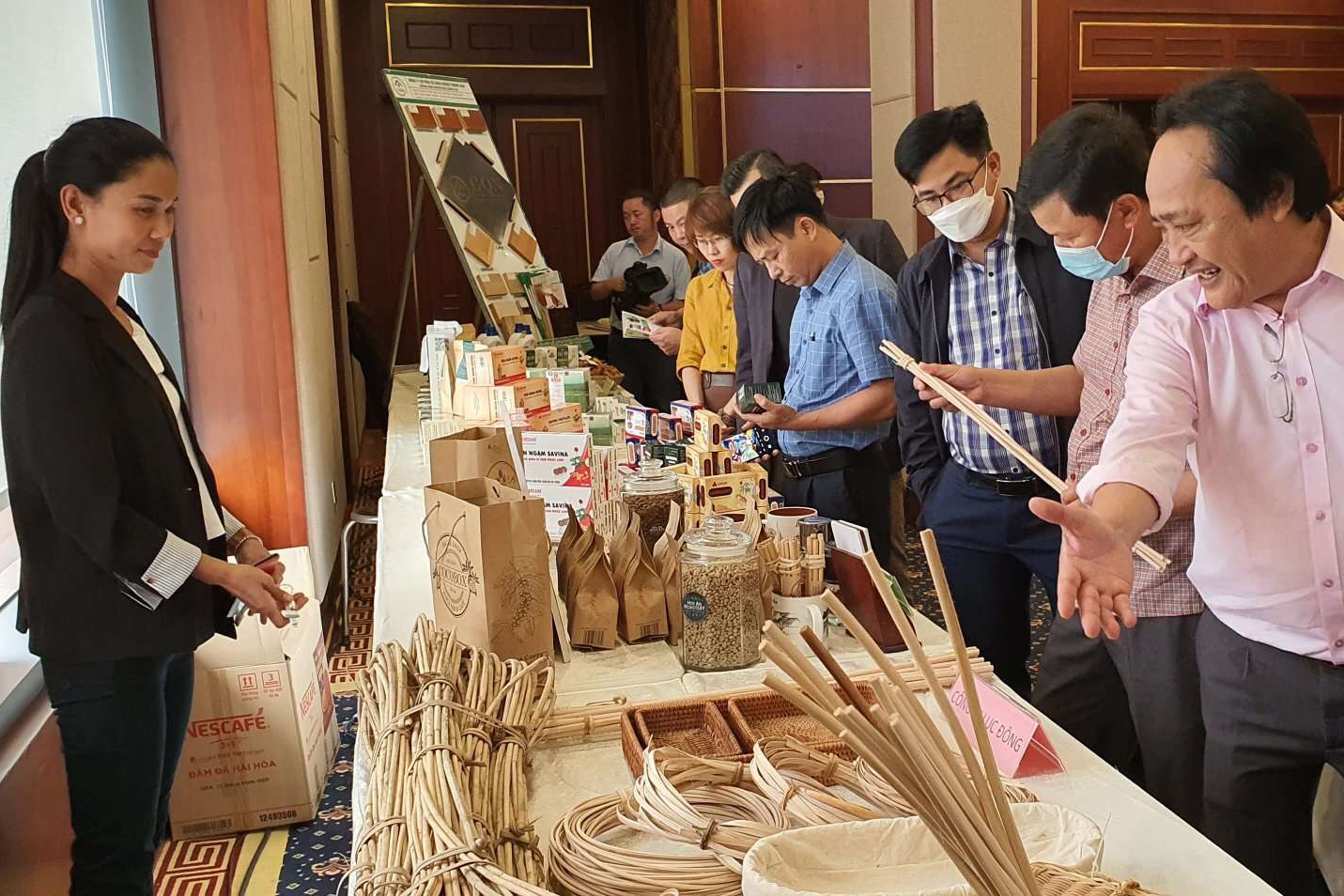
The forum to share experiences in developing agriculture and forestry in harmony with nature in the Central Truong Son region is organized by WWF and the Ministry of Agriculture and Rural Development.
Nature-based solutions are projects that are financially viable and contribute to supporting sustainable and resilient landscapes and economies. These profitable projects will help reduce pressure on ecosystems while accelerating the expansion and scaling of positive impacts on nature and people.
Central Truong Son is a biodiversity hotspot not only in the region but also in the world with 134 species of mammals and more than 500 species of birds. It is also home to many communities that depend a lot on natural resources.
For that reason, the Central Truong Son region was selected as one of two habitats (along with the Mekong Delta) receiving investment from DFCD and LRF.
Dutch Fund for Climate and Development - DFCD
The Dutch government has earmarked €160 million through the Dutch Climate and Development Fund (DFCD) to increase the resilience of communities and ecosystems that are most vulnerable to climate change. The Netherlands Development Bank (FMO), the Netherlands Development Organisation (SNV) and WWF-Netherlands, the International Organisation for Conservation of Nature in the Netherlands, have been honored to be selected as management partners for this fund.
DFCD aims to attract and mobilise private capital for large-scale projects that are well designed and have a big impact in supporting climate change adaptation and mitigation.
After 2 years of implementation, now DFCD in Central Truong Son has identified a number of potential projects, assisted companies in building dossiers, completing technical requirements of the fund (capacity building, completing apparatus, assessment of project feasibility, etc.).
Landscape Resilience Fund
Sharing the same goal as the DFCD, supporting communities vulnerable to climate risks, the Landscape Resilience Fund (LRF) also seeks and supports small and medium-sized businesses to implement naturally harmonised projects to create positive impacts on livelihoods, gender equality, biodiversity conservation and carbon sequestration.
The Landscape Resilience Fund was established by the South Pole Foundation and WWF, with the support of the Global Environment Fund and CHANEL - the main investor. The fund has been implemented for 5 years and a half (from July 2021), and with the initial positive results of DFCD, the fund has chosen the Central Truong Son as the first landscape area in the world to deploy activities. motion.
If DFCD targets large-scale projects with a minimum loan amount of 7 million euros and reciprocal capital of about 3 million euros, LRF offers opportunities for small-scale projects with a loans from $500,000 to $2 million. LRF helps ensure a balanced development of businesses of all sizes during the transition to a sustainable, climate-resilient economy.
Translated by Hien Anh
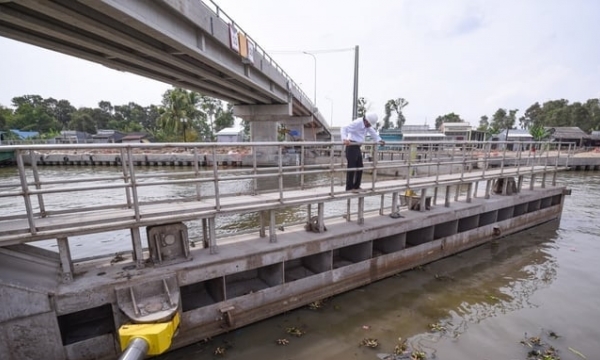
(VAN) Since its inception, the Ninh Quoi sluice gate in Bac Lieu province has significantly benefited the four Mekong Delta provinces during two severe dry seasons.
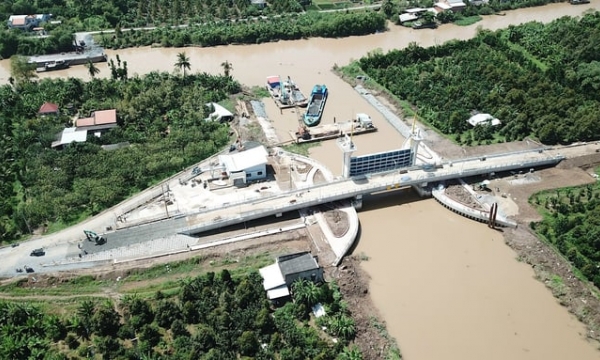
(VAN) During the dry season of 2024, the freshwater and saltwater control sluice projects invested in by the MARD in Ben Tre have significantly contributed to mitigating the impact of natural disasters in the region.
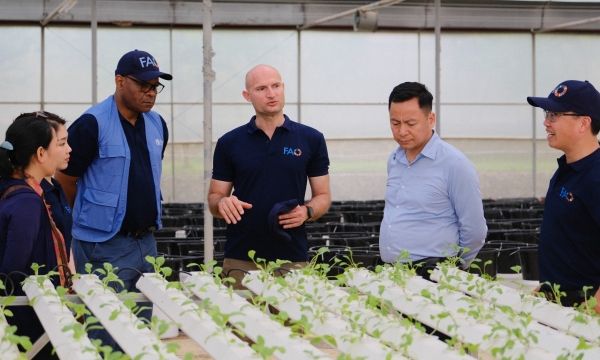
(VAN) The 'Smart Agriculture for the Future Generations' project is aiding 34 households in Moc Chau to renovate and optimize 35,420 square meters of greenhouse space.
/2024/04/23/2007-cover-nongnghiep-132002.jpg)
(VAN) 10 businesses linking with cooperatives and farmers in the provinces of An Giang, Dong Thap, and Kien Giang will be supported to produce low-emission rice on an area of 200,000 hectares.
/2024/04/23/4131-1-083340_987.jpg)
(VAN) On April 22, the Department of Crop Production coordinated with IRRI to organize a consultation workshop to evaluate and develop a digital data platform for effective management of rice production.
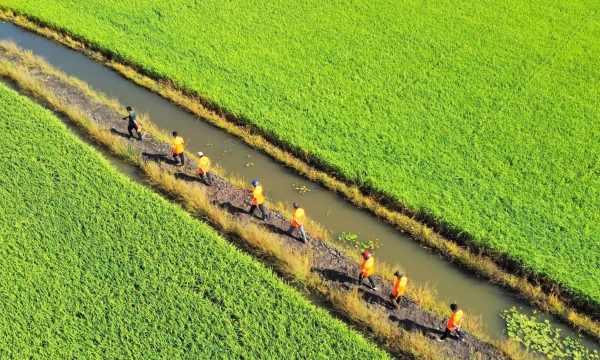
(VAN) SunRice Group is encouraging Mekong Delta farmers to implement sustainable rice farming techniques and set goals to reduce carbon emission to 0 throughout its value chain by 2050.
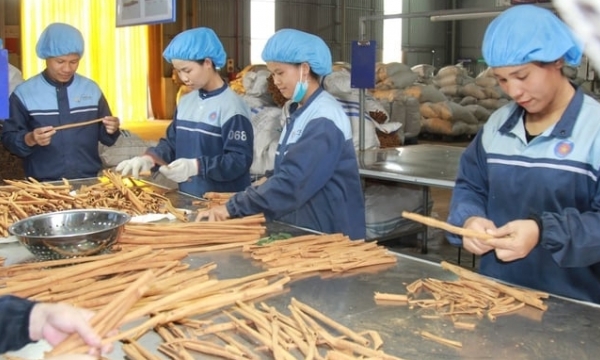
(VAN) Businesses and farmers have closely collaborated to develop organic cinnamon production area, with investments in high-tech deep processing factories for export.